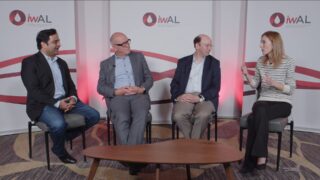
Academic history
Charles Craddock, CBE, FRCP (UK), FRCPath, DPhil, FMedSci, is Professor of Hemato-oncology at the University of Birmingham, Birmingham, UK, and Academic Director of the Centre for Clinical Haematology at the Queen Elizabeth Hospital, Birmingham, UK.
Prof. Craddock qualified at the University of Oxford, Oxford, UK, first obtaining his undergraduate degree in Physiological Sciences in 1979, before completing his MBBCh and his DPhil in 1982 and 1994 respectively. He became a fellow of both the Royal College of Physicians and the Royal College of Pathologists in 2008. Prof. Craddock trained in hematology at the Hammersmith Hospital in London, UK, the Institute of Molecular Medicine at the University of Oxford, and the University of Washington in Seattle, WA.
As Director of the BMT Unit at the Queen Elizabeth hospital in Birmingham, Prof. Craddock drove the establishment and subsequent expansion of the £7 million Centre for Clinical Haematology at the Queen Elizabeth Hospital and, as Director of Birmingham Health Partners, led the development of the £24 million Birmingham Institute of Translational Medicine, which opened in 2015.
Prof. Craddock is Chair of the NCRI Acute Myeloid Leukaemia Working Group and leads the UK Haemato-oncology Trials Acceleration Programme, as well as being elected President of the British Society of Haematology in 2017. He was awarded the CBE for services to medicine and medical research in the 2016 New Year’s Honours list.
Speaking on new drug and transplant therapies in myeloid malignancies
Prof. Craddock’s main research interests include the development of novel drug and transplant therapies in myeloid leukemias. He has an active interest in the development of novel reduced intensity conditioning regimens, immunotherapeutic strategies aimed at reducing infectious complications post-transplant and the incorporation of targeted and epigenetic drugs as adjunctive therapies after allogeneic transplantation.
In the past 15 years, Prof. Craddock has made a significant contribution to the development of reduced intensity conditioning regimens in acute myeloid leukemia (AML), myelodysplasia and chronic myeloid leukemia (CML). Prof. Craddock also has a long-standing interest in the clinical activity of histone deacetylase inhibitors and DNA methyltransferase inhibitors in patients with high-risk AML.




















